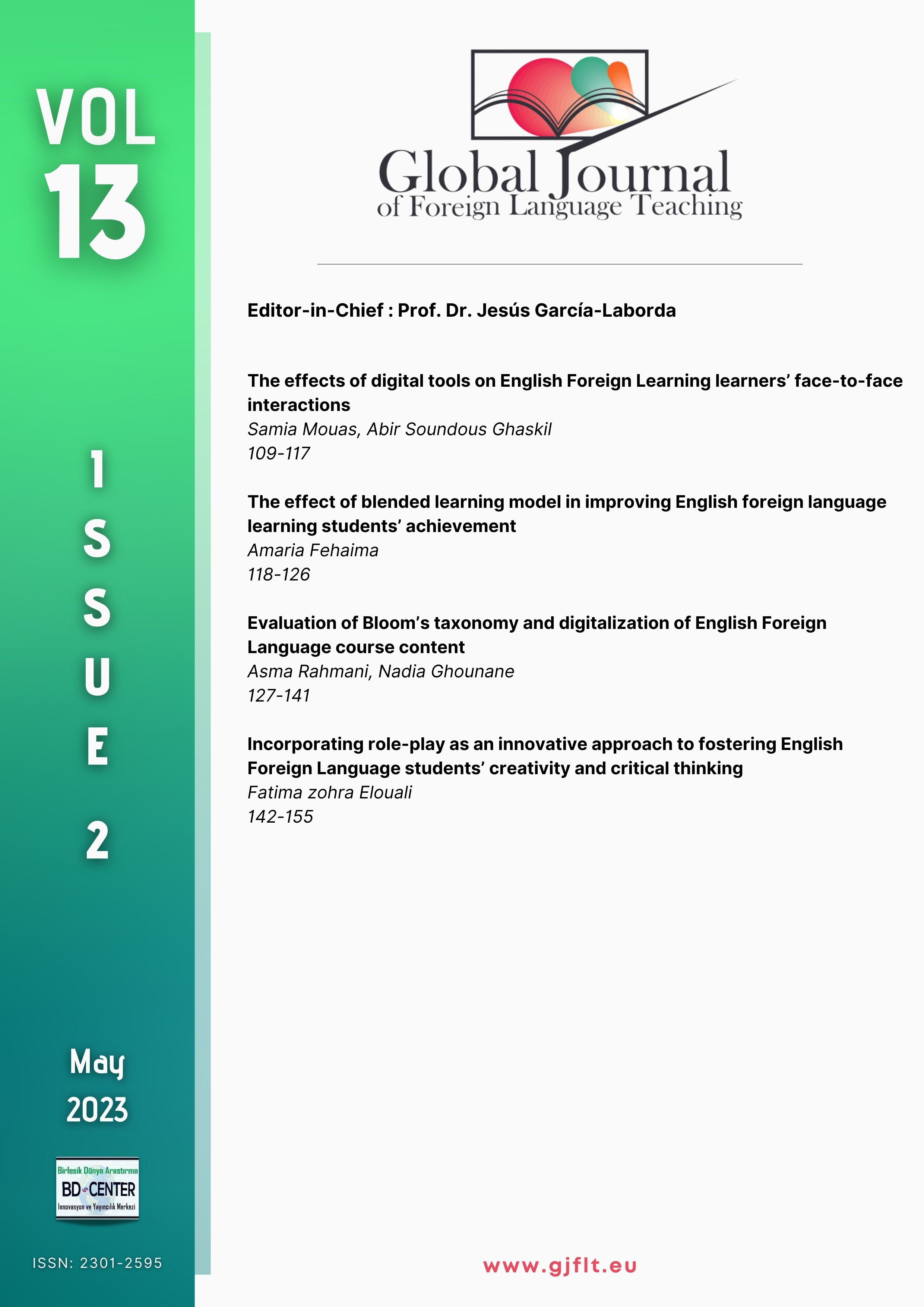Evaluation of Bloom’s taxonomy and digitalization of English Foreign Language course content
Main Article Content
Abstract
The present research is action research that aims at unveiling the impetus behind Bloom’s taxonomy when designing the online courses’ educational objectives in the digitized courses and checking its benefits on learners’ academic achievement. To gain empirical data, a survey was addressed to a sample of 62 teachers at the Department of English, Faculty of Foreign Languages. The survey consisted of an online questionnaire that attempts to collect teachers` viewpoints, perceptions, and experiences about the use of Bloom’s taxonomy when formulating courses’ objectives during online learning and its impact on learners’ achievement. The obtained results were coded, treated, and analyzed through the Statistical Package of Social Sciences SPSS. The findings of this paper revealed that the creation of effective objectives depending on Bloom’s taxonomy facilitates and highly improves learners’ academic achievement and serves as a guide in their new online learning setting.
Keywords: Academic achievement; Bloom taxonomy; courses’ content; COVID-19 pandemic; Online teaching.
Downloads
Article Details

This work is licensed under a Creative Commons Attribution-NonCommercial-NoDerivatives 4.0 International License.
Authors who publish with this journal agree to the following terms:- Authors retain copyright and grant the journal right of first publication with the work simultaneously licensed under a Creative Commons Attribution License that allows others to share the work with an acknowledgement of the work's authorship and initial publication in this journal.
- Authors are able to enter into separate, additional contractual arrangements for the non-exclusive distribution of the journal's published version of the work (e.g., post it to an institutional repository or publish it in a book), with an acknowledgement of its initial publication in this journal.
- Authors are permitted and encouraged to post their work online (e.g., in institutional repositories or on their website) prior to and during the submission process, as it can lead to productive exchanges, as well as earlier and greater citation of published work (SeeThe Effect of Open Access).
